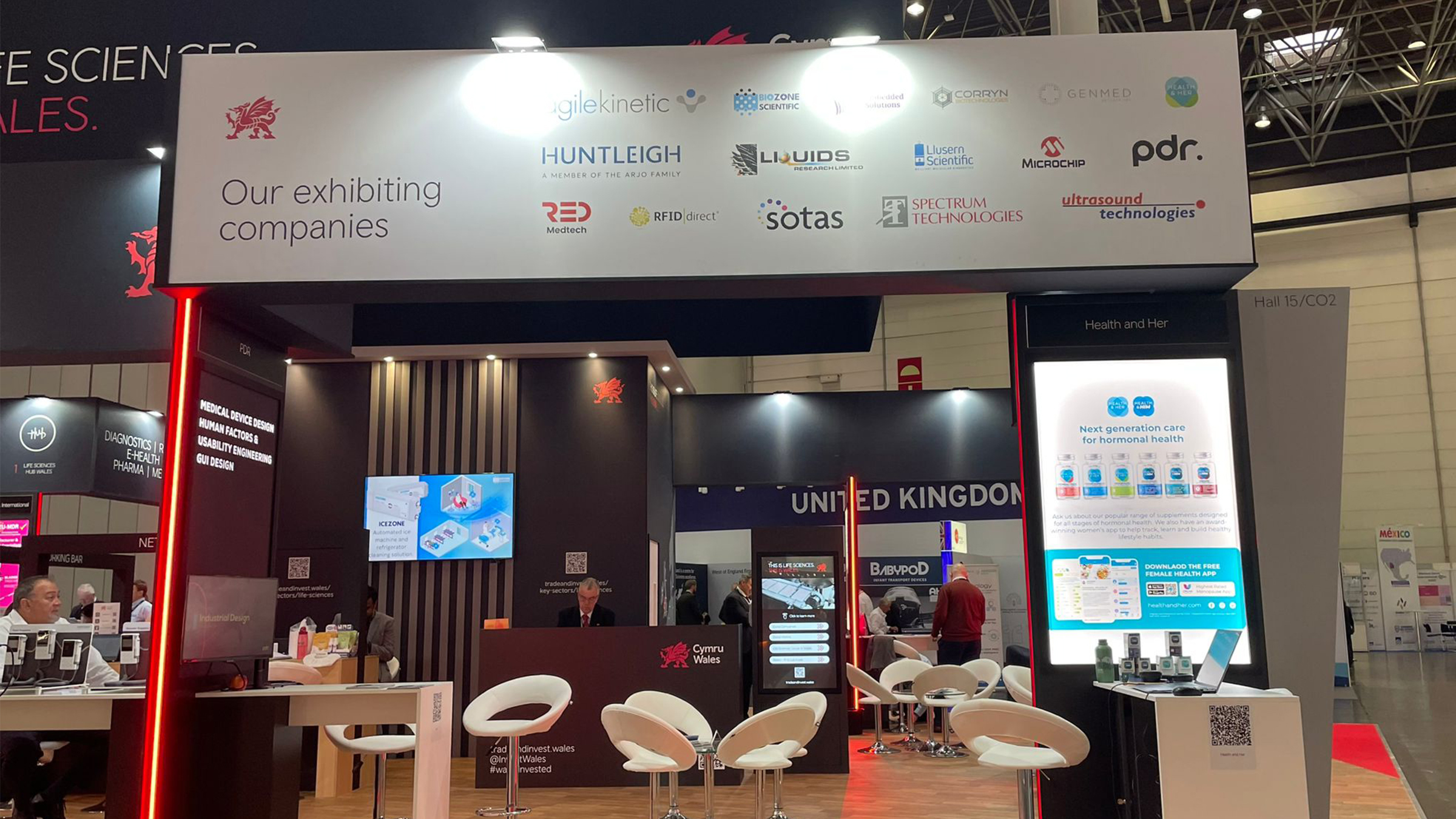Reflections on my first MEDICA trip
Recently we attended MEDICA 2024, one of the world’s largest trade fairs for medical technology and a key highlight in our events calendar. Director Jarred Evans and Business Development Officer, Mengting Cheng, spent four days of marching up and down the lengthy halls of the Messe, Düsseldorf, and connecting with exciting contacts old and new. Upon her return, we sat down with Mengting to get her thoughts on her first trip to MEDICA.
What are your general thoughts on the conference set up?
The MEDICA 2024 conference was a well-organised event with a really impressive set up. Even when I was still at Düsseldorf Airport waiting for my luggage, I saw ads for MEDICA everywhere. Along the Rhine River, there are several hotel ships for attendees, and the streets are full of MEDICA billboards.
On the first day, I felt both excited and a little lost. The venue is massive, and it took me 15 minutes just to walk from the entrance to our booth! If you work in healthcare or med-tech, this is the place to be. The conference has 16 giant halls, each focused on a different area, like digital health, diagnostics, and physical therapy. It’s like a small city inside. You’ll hear German, English, Chinese, Arabic and many other languages as you walk around. It’s so global.

What sort of conversations were you having?
I had many insightful conversations during the expo, with manufacturers from around the world. Chinese companies in particular stood out, which gave me a unique perspective on the trends in my root country. Chinese companies occupied about half of the market at MEDICA, showcasing their strong presence.
Jarred and I had chats with people in English and Chinese, which helped us uncover some interesting insights. We learned about potential customers' interests and concerns, especially for products within the medical device field like diagnostics and rehab devices, which are PDR’s speciality. From these conversations, we were able to identify useful strategies that we can take back to share with our team, to benefit both our business strategy and product development. It was a great opportunity to bridge international perspectives and bring new ideas to the table.
What were your personal highlights?
The trip was a unique learning opportunity. Over four days, I saw how medical devices and consumer health products are coming together. Many companies are developing devices for both clinical and home use, such as portable diagnostic tools and rehab equipment.
I also came across several consumer health products, like smart blood monitors, scales, and sleep trackers. These devices are becoming more accurate and are designed for everyday use, not just for healthcare professionals. It was exciting to see how healthcare technology is evolving to be more accessible and user-friendly for everyone.
There was an impressive mix of old and new companies, with setups ranging from large, sleek sales teams with a range of advanced products to simpler stalls focussing on a single product, often explained by one or two technically adept employees.
One of my favourite parts of MEDICA was the hands-on exhibits. Companies weren't just talking about their products; they were showcasing cutting-edge tech in real time. I had the chance to try a water massage bed, chiropractic services, AI-powered sports training games, and a portable smart BMI scale (who doesn’t love freebies?). There was so much amazing technology to explore

One of my favourite parts of MEDICA was the hands-on exhibits. Companies weren't just talking about their products; they were showcasing cutting-edge tech in real time. I had the chance to try a water massage bed, chiropractic services, AI-powered sports training games, and a portable smart BMI scale (who doesn’t love freebies?). There was so much amazing technology to explore.
What wider trends did you notice within the Medical Device Sector?
One big trend is the use of digital health technologies. Devices with AI, machine learning, and data analytics are becoming more common; helping people make faster, more accurate diagnoses, and offering more personalised treatment.
Another trend is the focus on smaller, portable patient-centred devices. More devices are being made for home use, and often connect to mobile apps, making it easier for patients to share data with their doctors in real time.
At PDR, we align with these trends, particularly in medical device development. Our services include Specification and Feasibility Analysis, Conceptual Design, and Mechanical Engineering for manufacture. Through our extensive global supplier network, PDR can seamlessly manage the development process from design to production, ensuring that devices meet the latest demands in the medical device sector.
Find out more about our Medical Device Design expertise.

